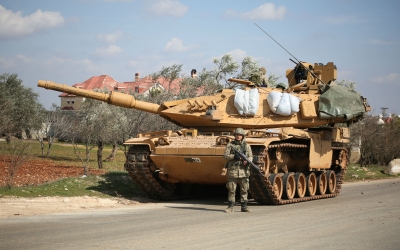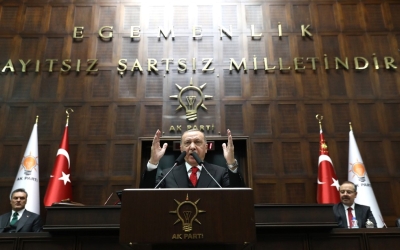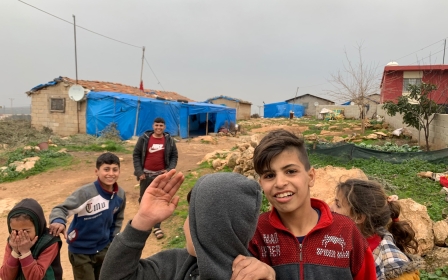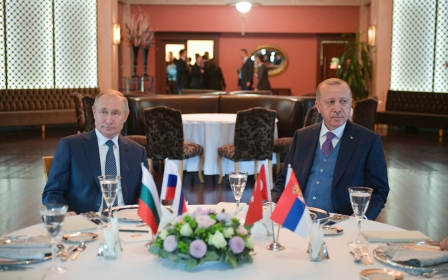Turkey requests US conduct aerial patrols near Idlib as Assad's forces close in
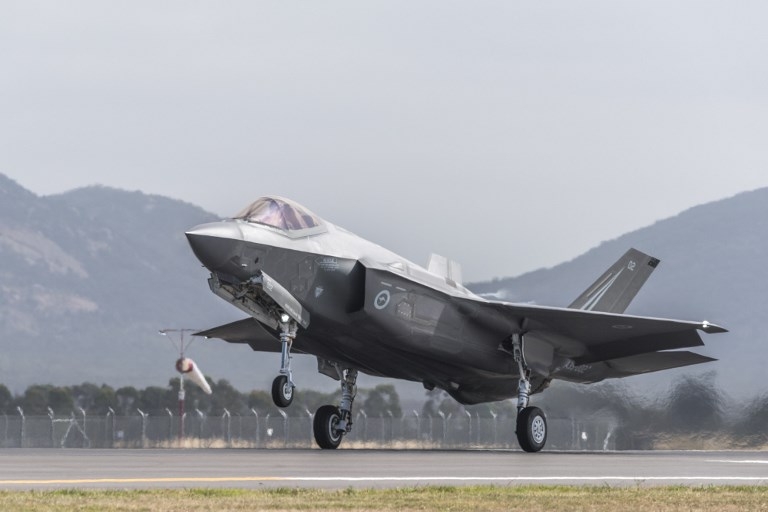
Turkey has asked the US to conduct aerial patrols in its airspace bordering the Syrian province of Idlib to show support for Ankara's ongoing military operations against forces loyal to Damascus, a Turkish official told Middle East Eye.
The latest request came earlier this month in meetings with US Special Envoy James Jeffrey in Ankara, where Turkish officials also asked Washington for two batteries of Patriot missile systems to shield the border area from possible air attacks, the official told MEE on condition of anonymity.
Since then, Turkish President Recep Tayyip Erdogan held a phone call with US President Donald Trump, but the White House has not given any indications that it would provide tangible support for Turkey's operations along its southern border.
"He [Trump] promised that he would sanction the regime officials, or anyone involved in attacks against the civilians. And that he would issue strong-worded statements," the official said. "But he didn't commit himself to anything involving the military, yet."
Another Turkish official said that Ankara was also waiting for a response from Nato to provide more support for its air defence needs.
Turkey, a backer of Syria's moderate rebels, has been forced to intervene in Idlib, a northwestern province that has become the opposition's last redoubt.
About three million people live in the rebel-held territory, but a pro-government offensive has displaced 900,000 since December, pushing more refugees towards the Turkish border.
Officials in Ankara say the US is unlikely to provide the Patriots without conditions, considering Turkey's deployment of Russian-made S-400s in its territory, which is sanctionable under US law.
Turkish Defence Minister Hulusi Akar said late on Wednesday that Turkey would appreciate US support, which could include the deployment of Patriots. Still, he added that Ankara would activate the S-400s.
"We will get them operational in the spring. No doubt about this," he said during an interview with CNNTurk.
Fractured ties?
Several sources based in Washington told MEE that the Pentagon was wary of backing Turkey in Idlib after past frictions such as Operation Peace Spring last year, which targeted the US's ally in Syria, the SDF.
"Washington would need some inter-agency discussion to come up with some aid package to Turkey in this critical time," one of the sources said.
A separate Washington source said envoy Jeffrey's efforts to repair Turkish-American ties were seemingly sabotaged by Pentagon leaks, including a revelation by Reuters earlier this month that the US had stopped sharing reconnaissance intelligence with Turkey on PKK targets in Iraq after Ankara's incursion into Syria in October.
Erdogan has threatened a full-blown assault against advancing Syrian government forces in recent days, giving Damascus until the end of February to retreat.
Backed by Russian airpower, Assad's forces have captured more than 600 square km of rebel-held territory in Idlib and Aleppo provinces since December.
Anxious about the onslaught, which has killed more than 300 civilians, and a possible influx of refugees, Ankara has poured men, arms and vehicles into northwestern Syria in an attempt to stem the tide.
Still, despite several threats of an "imminent" counteroffensive, and Syrian government fire this month that killed 15 Turkish soldiers, no large-scale operation has materialised.
Middle East Eye propose une couverture et une analyse indépendantes et incomparables du Moyen-Orient, de l’Afrique du Nord et d’autres régions du monde. Pour en savoir plus sur la reprise de ce contenu et les frais qui s’appliquent, veuillez remplir ce formulaire [en anglais]. Pour en savoir plus sur MEE, cliquez ici [en anglais].


